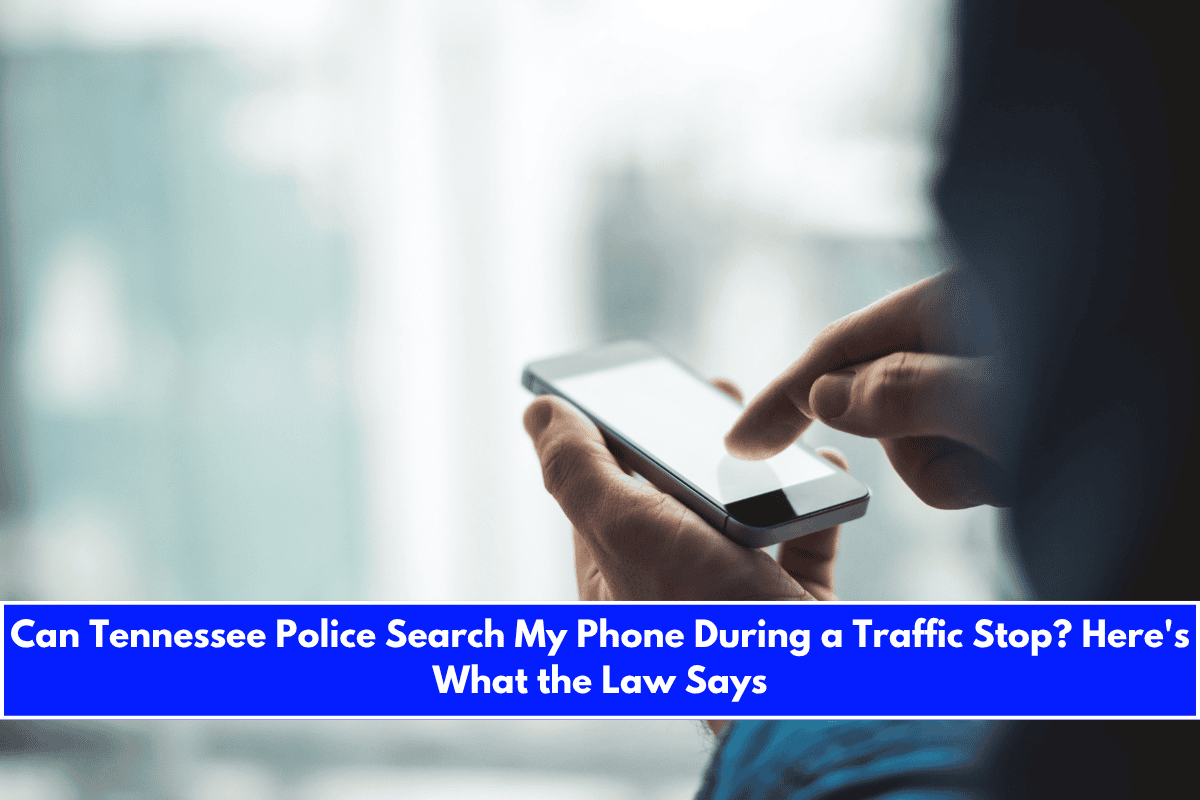In Tennessee, as across the United States, your mobile phone is protected by the Fourth Amendment, which guards against unreasonable searches and seizures. Because smartphones contain vast amounts of personal information, courts have ruled they deserve special privacy protections.
This means that, in most cases, police cannot search your phone during a traffic stop unless they have a valid warrant.
When Police Need a Warrant
The U.S. Supreme Court’s landmark 2014 decision in Riley v. California established that law enforcement must obtain a warrant before searching the contents of a cell phone-even during or after an arrest. This ruling applies in Tennessee and means officers cannot simply look through your phone as they might search your pockets or car.
Exceptions: When Police Can Search Without a Warrant
There are a few specific exceptions where Tennessee police may legally search your phone without a warrant:
- Exigent Circumstances: If officers believe that waiting for a warrant would lead to the destruction of evidence, immediate harm to someone, or a suspect escaping, they may seize your phone. However, even in these situations, they typically still need to get a warrant before accessing your data, unless the emergency is ongoing and immediate.
- Consent: If you voluntarily allow police to search your phone, they do not need a warrant. Consent must be given freely and cannot be coerced. You have the right to refuse a search, and anything found with your consent can be used in court.
- Search Incident to Arrest (With Limits): While police can search you and your immediate surroundings after an arrest, the Supreme Court has ruled that this does not extend to the digital contents of your phone without a warrant.
What If Police Search Your Phone Illegally?
If Tennessee police search your phone without a warrant and without a valid exception, any evidence they find may be excluded from court under the “exclusionary rule.”
This means illegally obtained texts, photos, or other data cannot be used against you. Your lawyer can file a motion to suppress this evidence, and if successful, it could weaken or even dismiss the charges against you.
Know Your Rights During a Traffic Stop
- You have the right to refuse a search of your phone if police do not have a warrant or a valid exception.
- If police present a search warrant, you cannot refuse the search but can verify its validity and scope.
- You are not required to answer questions beyond providing identification during a stop.
- If you believe your rights were violated, consult an attorney to challenge the legality of the search.
Summary Table: When Can Police Search Your Phone in Tennessee?
| Situation | Warrant Required? | Can You Refuse? |
|---|---|---|
| Routine traffic stop | Yes | Yes |
| With your consent | No | Consent is voluntary |
| Exigent circumstances | No (but limited) | No, if truly exigent |
| Incident to arrest (post-Riley) | Yes | Yes |
In Tennessee, police generally need a warrant to search your phone during a traffic stop. Exceptions are rare and tightly regulated. You have the right to refuse a search unless one of the narrow exceptions applies. If your phone is searched unlawfully, evidence can often be suppressed in court.
Sources:
- https://knoxcrimdefense.com/can-police-in-tennessee-search-your-phone-without-a-warrant/
- https://mylolowcountry.com/usa-laws/can-tennessee-police-search-my-phone-during-a-traffic-stop-heres-what-the-law-says/
- https://knoxcrimdefense.com/search-warrants-in-tennessee-what-you-need-to-know/
- https://knoxcrimdefense.com/know-your-rights-navigating-traffic-stops-in-tennessee/











Leave a Reply